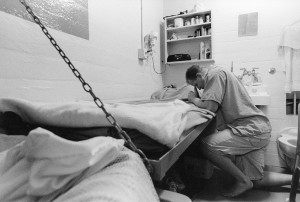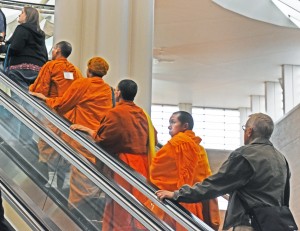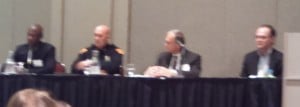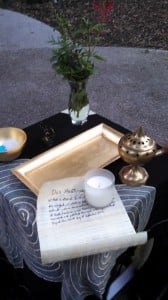Today I talked by phone for a bit with a chaplain in an Alaska prison. One of the inmates had contacted Cherry Hill Seminary about our new Pagan Life Academy print lessons for incarcerated Pagans, and I called the chaplain with a question. Our conversation surprised me.
Like many correctional systems around the country, Alaska was prompted by a lawsuit to institute improvements in their religious accommodation of diverse faiths among inmates. In the past, a contracted evangelical Christian group provided all religious services. Now, there are paid professional chaplains on staff (at least at this facility, and one hopes at the others), and they are trained to operate in a multifaith environment, regardless of their own personal beliefs.
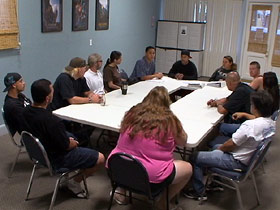 What really pricked my ears, however, was to learn that this prison is using a curriculum which teaches participants about other religions. The Federal Bureau of Prisons (Bureau) Life Connections Pilot Program (LCP) was originally part of the President’s Prisoner Re-Entry Initiative under Bush (2004). Here’s what the Department of Justice says about it:
What really pricked my ears, however, was to learn that this prison is using a curriculum which teaches participants about other religions. The Federal Bureau of Prisons (Bureau) Life Connections Pilot Program (LCP) was originally part of the President’s Prisoner Re-Entry Initiative under Bush (2004). Here’s what the Department of Justice says about it:
“The mission of LCP is to reduce recidivism and bring reconciliation to victim, community, and inmate through the study of secular reentry-related subjects (e.g., ethical decision-making, anger management, victim restitution) from the inmate’s religious or philosophical perspective. Participants are matched with volunteer mentors of their faith or philosophy who visit weekly and are linked with a church or like-minded group at their release destination in order to enhance community reintegration.
“Participants from the same faith study and pray together in small groups. They are led through a secular life-skills curriculum by a contracted spiritual guide of their faith, who discusses what their sacred text (e.g., Bible, Torah, Quran) says about the subject (e.g., responsible parenting, budgeting, marriage enrichment, religious tolerance, respect). They join their respective worship service in the general prison population; those of no designated faith engage in individual study during chapel times.” read more here
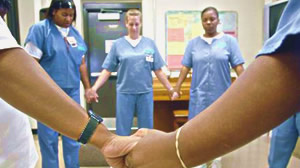 Inmates in LCP move to an all-LCP cell block, and “the rigors of the program prevent participants from working as much as the general population, thus sometimes cutting in half their monthly earnings.” The Alaska chaplain told me that their participants learn about all the other religions and attend different services to see what they are like. While I was unable to locate published results, sites around the country are being studied and some say that the program is showing recidivism rates of less than half that of non-LCP prison parolees.
Inmates in LCP move to an all-LCP cell block, and “the rigors of the program prevent participants from working as much as the general population, thus sometimes cutting in half their monthly earnings.” The Alaska chaplain told me that their participants learn about all the other religions and attend different services to see what they are like. While I was unable to locate published results, sites around the country are being studied and some say that the program is showing recidivism rates of less than half that of non-LCP prison parolees.
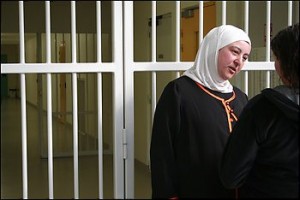
To my thinking, a prison is an intensely-concentrated microcosm of public society. Whatever may be lurking out there in the corners of the community will eventually turn up in a prison. Despite the high rates of recidivism (re-offending and being arrested), prison is a logical place for someone to do some soul-searching. People can, and many do, take their imprisonment as a place to catch their breath, think hard about past poor choices, and plan for a better future (inside or outside the walls). Many encounter order and structure for the first time in their lives; a fair number are fighting addictions. Prison is a bitter pill, no matter the crime, but it can be a lifesaver with the kind of help described in LCP.
Think what our world would be like if parolees re-entering our communities – starting jobs, moving into our neighborhoods, getting girlfriends or moving back in with their husbands and children – what would it be like if these people had learned the value of diversity, learned not to fear difference, learned to appreciate “the other,” and in the process developed their own spiritual practice. Come to think of it, think what our world would be like if all of us really learned these things.
It’s a new interfaith year and I’m grateful for this fresh inspiration.

